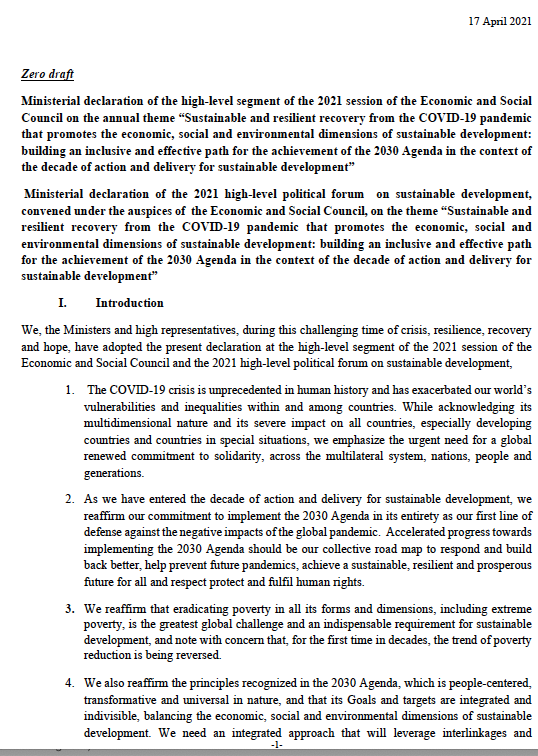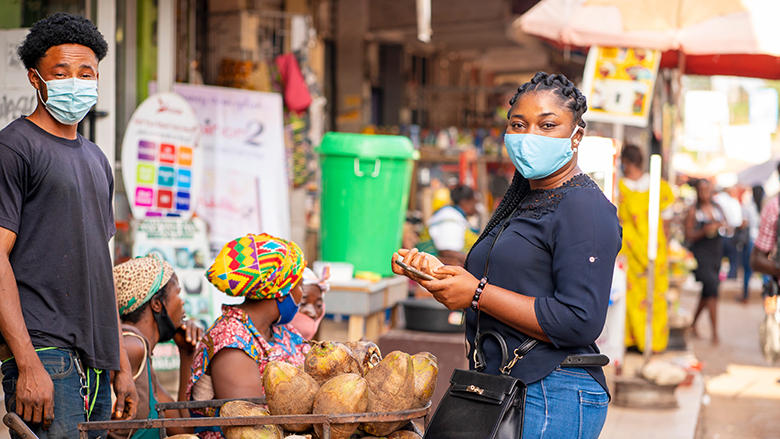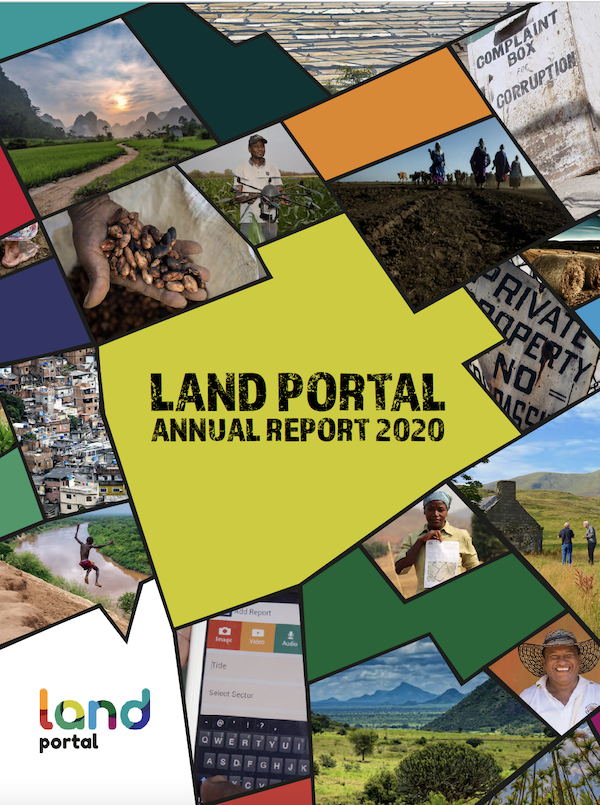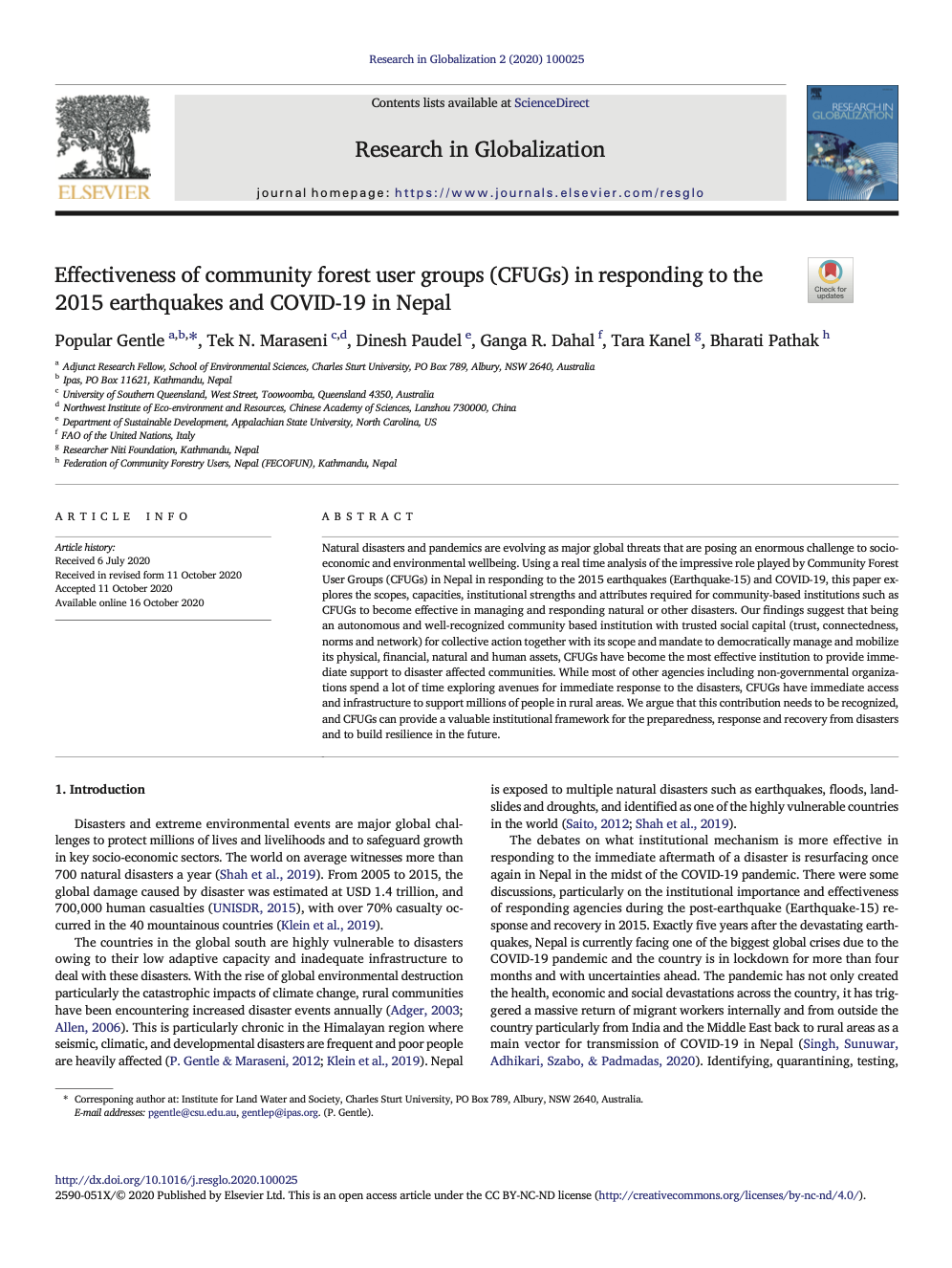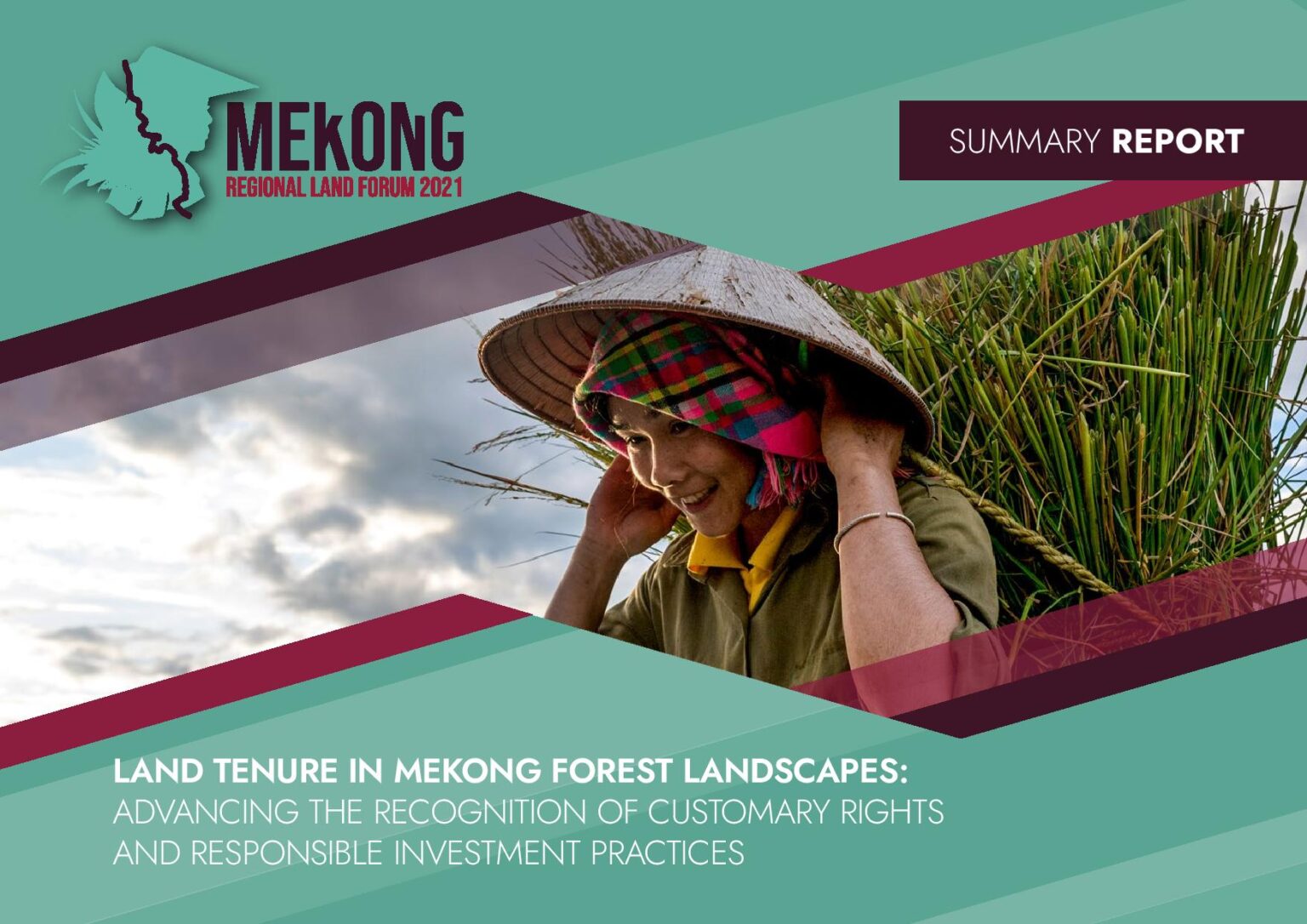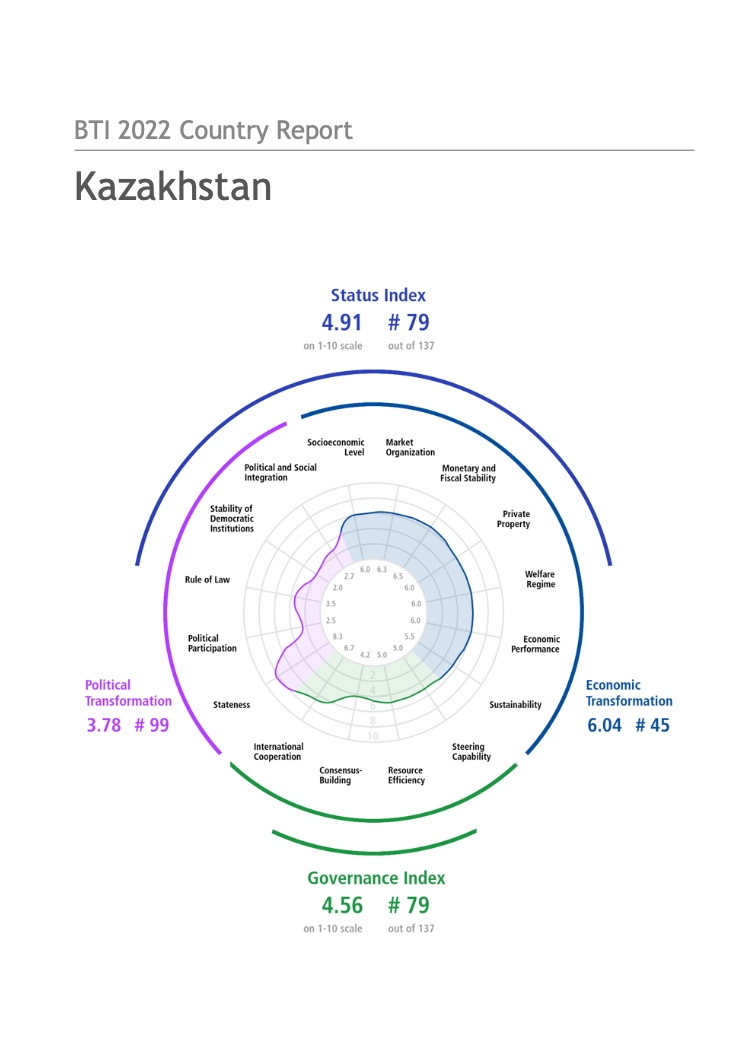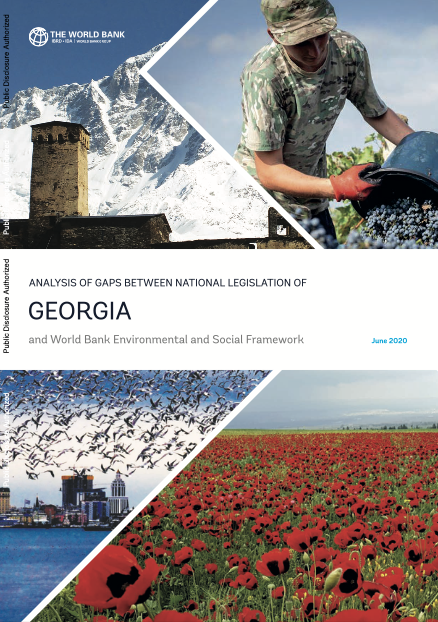Food Security and COVID-19
June 4, 2021 -- An increasing number of countries are facing growing levels of acute food insecurity, reversing years of development gains. Even before COVID-19 reduced incomes and disrupted supply chains, chronic and acute hunger were on the rise due to various factors including conflict, socio-economic conditions, natural hazards, climate change and pests. COVID-19 impacts have led to severe and widespread increases in global food insecurity, affecting vulnerable households in almost every country, with impacts expected to continue through 2021 and into 2022.
Land Portal Annual Report 2020
Long-term, sustainable and responsible ways to access and share data are fundamental to all efforts to support sustainable development and particularly salient to improving land governance and securing land rights for landless and vulnerable people. The COVID-19 pandemic has unequivocally demonstrated that the need for land rights has never been greater, as governments have shut down land administration systems and rolled back regulations protecting vulnerable communities.
Effectiveness of community forest user groups (CFUGs) in responding to the 2015 earthquakes and COVID-19 in Nepal
Natural disasters and pandemics are evolving as major global threats that are posing an enormous challenge to socio- economic and environmental wellbeing. Using a real time analysis of the impressive role played by Community Forest User Groups (CFUGs) in Nepal in responding to the 2015 earthquakes (Earthquake-15) and COVID-19, this paper explores the scopes, capacities, institutional strengths and attributes required for community-based institutions such as CFUGs to become effective in managing and responding natural or other disasters.
Tracking changes in land policies and practices in response to the Covid-19 crisis
Many challenges emerged in the last year, which were exacerbated by the pandemic in community level: Indigenous Community People in the Northwestern region of Bangladesh
Mekong Regional Land Forum 2021: Land tenure in Mekong forest landscapes: Advancing the recognition of customary rights and responsible investment practices. Summary Report
All That Glitters is Not Gold: Turmoil in Zimbabwe’s Mining Sector
Executive Summary
Violence has spiked in Zimbabwe’s gold mining sector, costing hundreds of people their lives and triggering a police operation that led to the arrest of thousands. Media and government blame artisanal miners, who dig using little mechanisation and often without licences but are the country’s main gold producers. Yet the bloodshed is better seen as a symptom of Zimbabwe’s flawed centralised gold buying scheme, patronage-based economy and obsolete legal and regulatory system.
COVID-19 and urban public transport services: emerging challenges and research agenda
This article explores the implications of the COVID-19 pandemic for public transport. Three elements are explored. Firstly, the short-term effects, including perceptions of public transport as a vector of virus transmission and shifts towards less-sustainable modes of transport. Secondly, we discuss key challenges such as the new difficulties of providing safe and reliable public transport services, the consequent barriers for the promotion of sustainable and healthy urban mobilities and the potential exacerbation of inequalities.
The impact of disasters and crises on agriculture and food security: 2021
On top of a decade of exacerbated disaster loss, exceptional global heat, retreating ice and rising sea levels, humanity and our food security face a range of new and unprecedented hazards, such as megafires, extreme weather events, desert locust swarms of magnitudes previously unseen, and the COVID-19 pandemic. Agriculture underpins the livelihoods of over 2.5 billion people – most of them in low-income developing countries – and remains a key driver of development.
BTI 2022 Country Report Kazakhstan
In 2019, the long-awaited transition of presidential power from Nursultan Nazarbayev to his anointed successor Kassym-Zhomart Tokayev took place. However, Nazarbayev continues to wield power. Among his many positions is the chair-for-life of the National Security Council, a constitutional body that has effective veto power over key policy decisions.
Analysis of Gaps Between National Legislation of Georgia and World Bank Environmental and Social Framework
Over the last two decades, Georgia has made impressive progress in economic growth and reforms. These advancements have also brought about an increase in investments and infrastructure as well as in service sectors, such as tourism, that provide a potential for future growth and welfare. Georgia’s leaders and society have also recognized that the pursuit of growth depends on the sustainability of its development path. Sustainability, in turn, hinges on the protection of the country’s most valuable assets –its nature, people, and cultural heritage.
Good Practices in Land Rights Work.
In order to further benefit from the great wealth of

